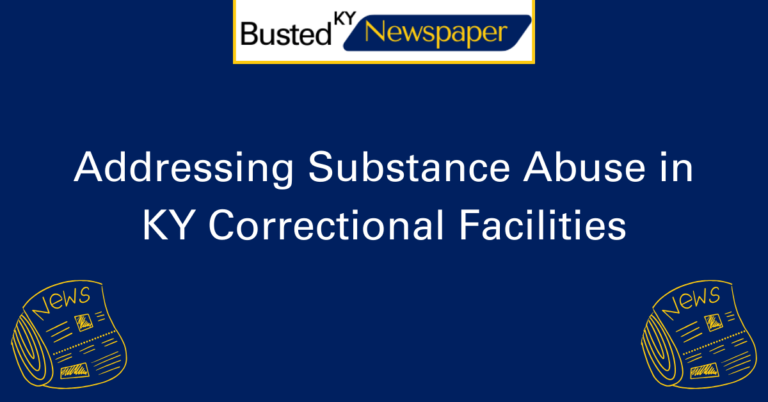Supporting Inmates’ Families in Kentucky: Resources and Tips
Understanding the Emotional Impact
When a loved one is incarcerated, the emotional toll on their families can be immense. Coping with feelings of sadness, anger, and confusion is a normal part of the process. It’s important to acknowledge and address these emotions to navigate this challenging time effectively.
Financial Challenges and Strategies
One of the major burdens faced by inmates’ families in Kentucky is the financial strain caused by incarceration. From legal fees to travel expenses for visitation, the costs can quickly add up. It’s crucial to explore available resources and financial strategies to alleviate this burden and ensure the well-being of the family.
Logistical Considerations and Practical Tips
Managing the logistics of maintaining connections with an incarcerated loved one can be overwhelming. From understanding visitation schedules to sending and receiving mail, there are numerous details to navigate. This section will provide practical tips and guidance on how to handle these logistical challenges with ease.
Community Support and Networking Opportunities
No family should feel alone in their journey of supporting an incarcerated loved one. Connecting with others who are going through similar experiences can provide a sense of community and understanding. This section will highlight various support groups, networking opportunities, and resources available in Kentucky for inmates’ families.
Building Resilience and Strengthening Bonds
While incarceration can strain family relationships, it is possible to build resilience and strengthen bonds during this difficult time. This section will explore strategies and activities that promote communication, emotional well-being, and healthy relationships between inmates and their families.
Accessing Vital Resources and Services
Knowing where to turn for assistance is crucial for inmates’ families in Kentucky. This section will provide an overview of the essential resources and services available to support families, including legal aid, counseling services, educational opportunities, and employment assistance.
FAQ’s
In Kentucky, numerous resources are available to support the families of inmates, recognizing the challenges they face. One crucial avenue is the Kentucky Department of Corrections (KDOC), which provides information and assistance to families navigating the complexities of having a loved one incarcerated. The KDOC often collaborates with local non-profit organizations, offering programs ranging from counseling services to support groups. Additionally, initiatives such as family reunification programs and parenting classes are often available, aiming to strengthen familial bonds during the incarceration period. These resources collectively contribute to a holistic approach to helping Kentucky inmates’ families cope with the emotional, financial, and social strains associated with incarceration.
Maintaining connections with incarcerated loved ones is essential for both emotional well-being and successful reintegration into society. The Kentucky Department of Corrections acknowledges this need and provides various avenues for communication. In-person visits, although subject to certain restrictions, allow families to spend quality time with their incarcerated relatives. Additionally, many Kentucky prisons facilitate phone calls and video visits, fostering regular communication. Beyond these, inmate correspondence programs and messaging services are often available, ensuring that families can stay in touch through written communication. These efforts collectively contribute to the rehabilitation process, recognizing the positive impact of family support on an inmate’s mental and emotional health.
Recognizing the financial strain on families with incarcerated members, Kentucky often offers financial aid programs to ease the burden. State and local agencies, along with non-profit organizations, may assist with essential needs such as housing, utilities, and childcare. Additionally, some programs offer financial literacy courses to empower families with the skills needed to navigate challenging economic circumstances. These initiatives aim to reduce the financial stress on inmates’ families, acknowledging the importance of stability in fostering a supportive environment for both the incarcerated individual and their loved ones.
Support for inmates’ families extends beyond just financial aid. Numerous organizations in Kentucky focus on providing emotional and social support. Local community centers and churches often host support groups where families can share their experiences, receive guidance, and form connections with others facing similar challenges. Counseling services may also be available to help families cope with the emotional impact of having a loved one incarcerated. By fostering a sense of community and understanding, these support networks play a crucial role in mitigating the isolation and stigma often associated with having a family member in prison.







